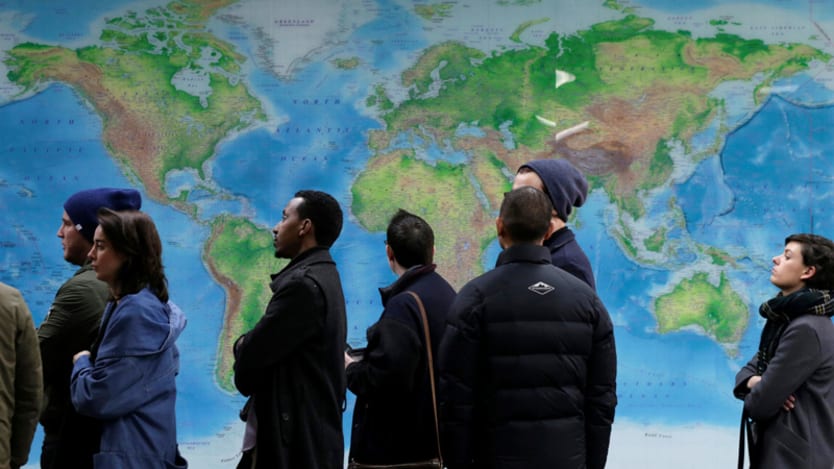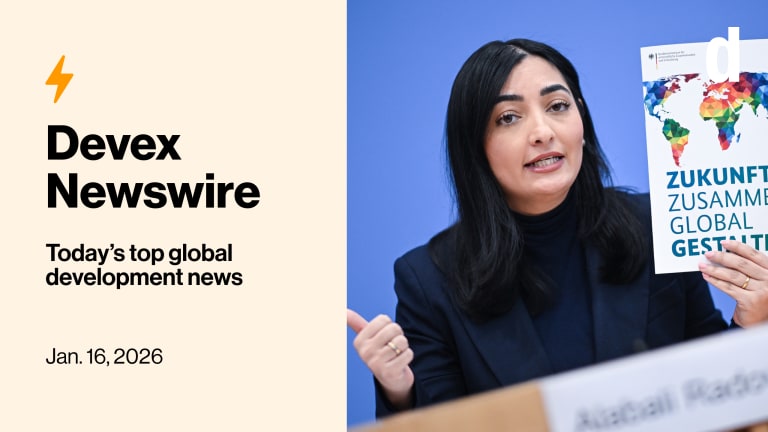
CANBERRA — Australian Parliament returned on Feb. 12, and with just 14 sitting days expected before the 2019 federal election expected to be held in May, the government began work to progress agendas and legislation they hope to sell to voters — including work that will play a role in the future of the Australian aid program.
“There is a greater role for us to communicate the huge benefits to Australia of the work that we do in the Pacific ... making sure that Australians understand that their money … is delivering good and strong benefits for [these] communities.”
— Anne Ruston, Australian assistant minister for international development and the PacificAnne Ruston, assistant minister for international development and the Pacific, spoke to Devex about the key priorities for Prime Minister Scott Morrison’s government.
This conversation has been edited for length and clarity.
Is there any legislation or other work you are aiming to complete before the upcoming election, to avoid the impact of changing parliamentary numbers?
The EFIC legislation [which proposes reform to the Export Finance and Insurance Corporations to administer 1.2 billion Australian dollars, or $0.86 billion, for Australian businesses building infrastructure overseas] was introduced this week because it is one of the few things in our Pacific “step-up” strategy that requires legislative change. We’d like to see that through so we are able to stand up a full financing facility by July 1 this year.
We are reasonably hopeful that will pass through the House of Representatives and we will see it in the Senate [this week]. We would like to think that we would get bipartisan support like we usually do for foreign affairs policies and initiatives, and I can’t see why we wouldn’t be able to get that bipartisan support. It’s more about [having] made a commitment on this and we want to move quickly on it. It’s much needed, has been very well received and we didn’t want to hold anything up.
With work that does not require legislative change, what are your priorities for international development and the Pacific prior to the election?
More on Australian aid:
► A checklist for engaging the Australian government in humanitarian action
► Australian aid: The financial impact of a new government revealed
► Australian aid's new focus: Infrastructure finance, security, sports
One of the things I have absolutely prioritized is making sure I get out to the Pacific and speak to the various players to make sure they are hearing from me firsthand about how step-up will play out in their country.
But equally, I’m very keen to be working with the Pacific island countries so they — from a regional perspective — have some involvement in what we do as part of a suite of measures. My main priority will be to get out to the Pacific and to the places I haven’t been yet and talk to them about what it is they want.
With the fact that the Pacific step-up has had a big push from the prime minister, do you anticipate playing a part in the broader re-election campaign?
I don’t necessarily think there was any thought given to politicking [around] step-up. What the prime minister and the rest of us were very keen to do was to make sure that we were playing a role in the security of our region. But playing on from that, I do think that there is a greater role for us to communicate the huge benefits to Australia of the work that we do in the Pacific and equally making sure that Australians understand that their money … is delivering good and strong benefits for the communities we are working with.
The Pacific step-up is a whole-of-government program with various agencies and ministers playing important roles — including the minister for trade, tourism, and investment, who is responsible for funding infrastructure projects through EFIC. How do these various players impact the delivery of the Australian aid program?
The foreign minister and I work very closely with the trade minister and the assistant trade minister. We meet regularly to discuss how we are using the trade element of economic development to meet some of the broader development goals, particularly in the Pacific.
We’ve seen Minister [Mark] Coulton [assistant minister for trade, tourism, and investment] spend a lot of time in the Pacific talking about opportunities, and the development of PACER Plus [a free-trade agreement between Australia, New Zealand, and nine Pacific island countries] is an example of ensuring that the trade component of economic development is well and truly embedded in what we are doing.
I think it always has been very integrated with trade but can appear from the outside that it is not as coordinated as what it is.
The EFIC situation sits under the trade minister. But like all of these programs, they go through a whole-of-government process, as we are dealing with finance and the finance minister needs to also have a say in it.
Behind the scenes, many other agencies become involved in the development of these programs. The Seasonal Worker Program, for example, is about jobs. But it is intrinsically embedded in our whole Pacific strategy. We have people on secondment to input into strategies so we don’t let anything fall between the gaps, and everyone knows what everyone else is doing to maximize the benefit.








